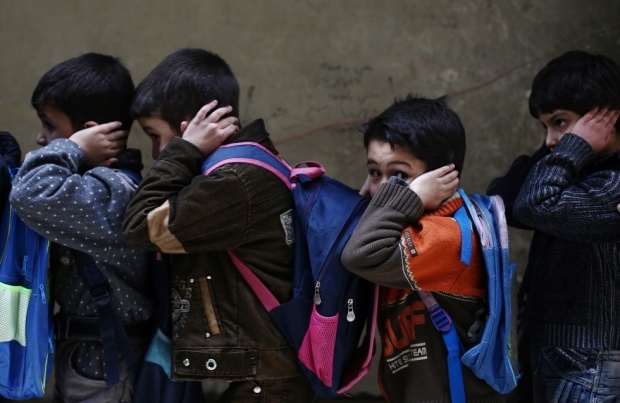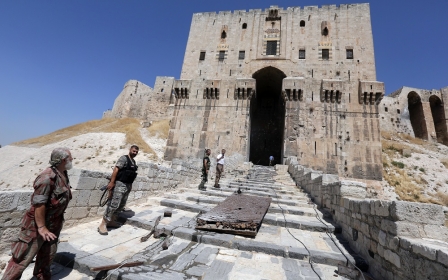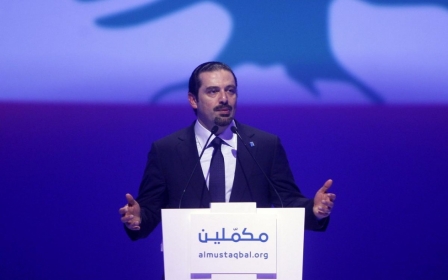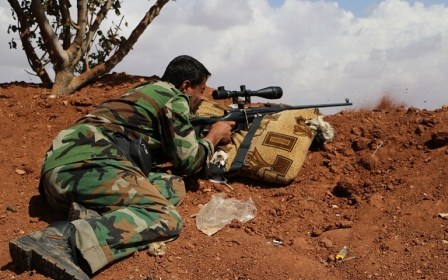Assad would accept Aleppo humanitarian ceasefire: UN envoy

The Syrian government is willing to suspend its aerial bombardment of Aleppo for six weeks to allow for a localised humanitarian ceasefire, a UN diplomat said late on Tuesday.
Staffan de Mistura, the United Nations' special envoy to Syria, announced the initiative during private meetings with the Security Council.
"The government of Syria has indicated to me its willingness to halt all aerial bombing and artillery shelling for a period of six weeks all over the city of Aleppo from a date we'll announce from Damascus," de Mistura told journalists after addressing the Security Council.
De Mistura, an Italian-Swedish diplomat, recently went to Syria and met with President Bashar al-Assad.
The UN envoy said he'd asked the regime to facilitate a UN mission to identify a district in Aleppo to serve as a trial area for a ceasefire.
"We'll see if the freeze holds and can be replicated," he said.
Rebel fighters who hold parts of Aleppo, but have no air power, would also be sought out and asked to suspend rocket and mortar fire for six weeks, de Mistura said.
"The purpose is to spare as many civilians as possible while we try to find a political solution," the diplomat added.
De Mistura acknowledged a ceasefire would be tough to achieve, given past failures, but said there was "a glimmer of hope". He did not address the latest flare up in fighting which broke out on Monday and saw Assad's forced lead a fresh offensive on the city, with Islamic Front opposition fighters also making gains in the countryside.
Appointed as the UN's special envoy for the Syria crisis last July, de Mistura briefed the Security Council on initial findings of his mission, aimed at ending the four-year conflict that has devastated Syria.
De Mistura had last year proposed to Syria the setting up of ceasefire zones to allow the distribution of humanitarian aid in Aleppo.
The city has been divided since July 2012 between government loyalist fighters in the west and rebels controlling eastern sectors.
De Mistura caused a stir last week by saying that Syrian President Bashar al-Assad was “part of the solution” to the almost four-year conflict.
His comments were met with dismay from Syrian opposition members. Speaking from Istanbul, a member of the opposition Samir Nashar told AFP that “…De Mistura is fooling himself if he thinks that Assad is part of the solution.”
De Mistura’s spokeswoman, Juliette Touma, however, told the New York Times last week that Assad continued to hold significance and could not be ignored.
“Syrian authorities should be part of the long-term solution,” she said. “Assad doesn’t stand alone. He represents the Syrian institutions and these too must be preserved - the institutions that have been providing services and will continue to provide services.”
Analysts have been hinting for months that the once ironclad Western insistence that Assad must go has been easing, in large part due to the growth of groups like IS as well as the seeming inability of the so-called moderate opposition to unify and capture and hold significant parts of territory.
The Islamic State, which captured vast swathes of territory in Syria and Iraq, has long shocked the international community for committing and publicising a string of violent antics, including beheadings and mass executions, as well as the persecution of minorities.
IS is now seen to represent the most pressing problem in Syria not just by De Mistura, who described them as an opportunist “monster”, but by the international community as well.
With a sophisticated media apparatus, IS’s doctrine has spread throughout the region, driving regional leaders and others to join in a US-led coalition, which launched airstrikes against the group – something that the West shied away from doing against Assad.
Despite the reports that some kind of cooperation between Assad and the West is happening behind the scenes, many politicians, analysts and opposition have been quick to stress that Assad is unlikely to become a long-term partner.
“If Assad was really interested in fighting IS, he would have sent his troops to [IS’s self-proclaimed capital in Syria] Raqqa rather than to Douma,” Nashar said.
Fighting freeze
With no end in sight to the bloody war, however, the international community has grown desperate to find alternative solutions.
De Mistura has been a key force pushing for the implementation of a UN plan that would like to see local truces adopted as an interim solution. The UN envoy had previously told reporters that he did not have a peace plan, but rather an “action plan”.
“The idea behind the freeze, which I hope will occur soon in Aleppo, is that there will be humanitarian aid and a rebuilding of the city,” he said.
The “action plan” is based on easing suffering and enabling the access of aid and other goods that would provide immediate humanitarian relief.
“A freeze is something different, a different concept. It is a proposal by the UN to freeze the military activities of the two sides at the same time, without any contempt, defeat or victory,” De Mistura told Arabic newspaper al-Hayat in an interview late last year.
“Simply put, it is a cessation of hostile activities. In this sense, the freeze and details of the plan have a nature that differs from what we’ve seen in the past with ceasefires.”
“The only solution is a political solution,” he added.
“We have to start somewhere,” he said. “Many drops can produce a lake and a lake can produce a sea.”
But whether even this limited measure will be accepted by the various sides remains to be seen.
The Syrian government had already said that it wanted to limit the freeze to the city of Aleppo and exclude the countryside, while the opposition is keen to see the freeze extended to the Turkish border and autonomous rule adopted in rebel-held areas.
Lebanese analyst and former minister Nasser Qandil, who is deemed to have links to Lebanon’s 8 March camp, said one of the main problems with the freeze was that the United Nations did not seem willing to fully address other issues, such as how to deal with the Turkish border, where Damascus says militants are crossing into Syria.
Qandil told Reuters that De Mistura had agreed with Assad that securing the Turkish border, which lies north of Aleppo, should come under any ceasefire plan but appeared to backtrack when he visited the Turkey-based opposition.
New MEE newsletter: Jerusalem Dispatch
Sign up to get the latest insights and analysis on Israel-Palestine, alongside Turkey Unpacked and other MEE newsletters
Middle East Eye delivers independent and unrivalled coverage and analysis of the Middle East, North Africa and beyond. To learn more about republishing this content and the associated fees, please fill out this form. More about MEE can be found here.




